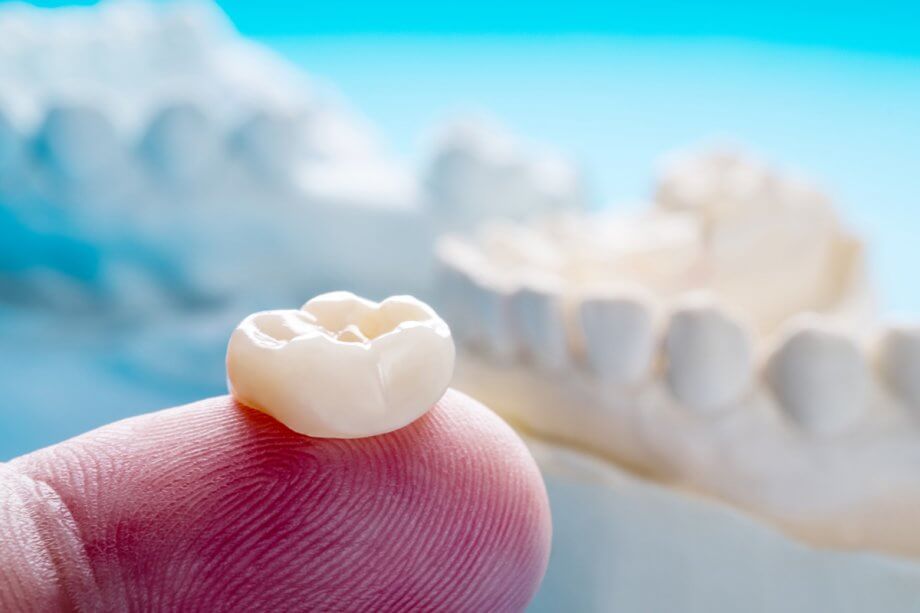In most cases, teeth that are damaged by decay, cracks, fractures, and chips can be restored to good health with a dental crown. Even teeth that develop infections in the pulp, or that have decay that reaches the interior of the tooth can be restored with a dental crown following a root canal. However, because a crown is bonded (cemented) to the natural tooth beneath it, you’ll need to have sufficient tooth structure remaining to support the dental crown. But what happens if there is not enough tooth for a crown? Read on to learn about your options for treatment if you do not have enough natural tooth remaining to support a dental crown.
Treating a Tooth Too Small for a Dental Crown
In cases where the existing tooth will not provide enough surface area or stability to support a dental crown, a few options exist.
First, dental composite bonding may be sufficient to support a crown. Composite bonding uses a very strong material to build up the tooth, and reshape it to support a crown. The material used to do this is the same material used in cosmetic dental bonding to fix chips, lengthen short teeth, etc. So, it is a very durable material that can support a dental crown.
A second option for fortifying a tooth so that it can support a dental crown is a procedure known as a “post-and-core foundation.” This procedure will follow a root canal. During the root canal, the pulp of the tooth will be removed, and the interior of the tooth will be disinfected and filled with a material called gutta-percha.
In the post-and-core foundation procedure, your dentist will place metal posts inside the interior of the tooth after the tooth is filled with gutta-percha. These posts will provide enough support to the remaining natural tooth to accommodate a dental crown.
Dental Implants for Teeth Too Small for Dental Crowns
The last option for treating a tooth too small to support a dental crown is to extract the tooth and replace it with a dental implant. There are two types of dental implants.
A full-size dental implant, made of a biocompatible material such as titanium or zirconia will be surgically implanted in the jawbone. After 4-6 months, the implant will fuse with your jawbone, and you will return to the dentist to have it fitted with a small device called an abutment, that will attach a dental crown to the implanted post.
Mini dental implants (MDIs) are also a viable option for patients who do not have enough tooth left to support a dental crown. In some cases, a tooth that has broken beneath the gum line, for example, may be extracted, and a mini dental implant can be placed immediately following your dental extraction. Mini dental implants do not require general anesthesia, so they are often ideal immediately following a tooth extraction.
Book an Appointment to Treat a Painful or Damaged Tooth in Charlestown, RI
If you’re suffering from tooth pain, it is important to see a dentist ASAP for an accurate diagnosis, and swift treatment. Arrowhead Dental provides dental crowns, root canals, and dental implants to restore damaged teeth or replace teeth that must be extracted. To book an appointment, call 401-364-6300, or send us a message.

